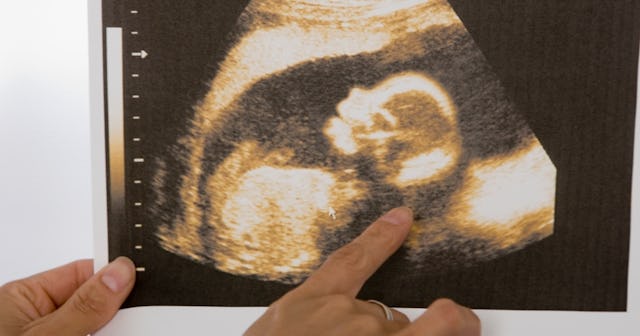The Ramzi Method: Can It Really Determine Baby's Sex During Early Ultrasounds?

Second only to the anticipation of a pregnancy test result, expecting parents excitedly turn their attention to the next big reveal coming their way: the baby’s sex. Many new parents want to find out the gender of their baby before the birth for a number of reasons. Maybe you want to get a jump start on baby names, or maybe you want to plan the nursery color scheme or maybe your family has a genetic history of a particular disorder that’s linked to gender. Or maybe a family member claims your pregnancy symptoms lean to one sex over the other. Whatever the reason, most parents won’t learn of the sex of their baby until about halfway during the pregnancy — between 16 and 20 weeks. But what if you want to find out sooner? Is there a way for you to discover if you’re having a boy or girl as soon as possible? Apparently the answer is yes, according to the Ramzi method.
What is the Ramzi Method, anyway?
The Ramzi method, or Ramzi theory, was developed by Dr. Saam Ramzi Ismail and claims that you can predict a baby’s sex as early as six weeks into your pregnancy by determining how and where the placenta formed by viewing images from an ultrasound. According to the Ramzi method, if your placenta is forming on the right side of your uterus, the baby is most likely a boy. If it’s forming on the left side, it’s probably a girl.
Who is Dr. Saam Ramzi Ismail?
There is some controversy surrounding the theory, and much of that has to do with Ismail himself. For starters, Ismail is not a medical doctor. Rather he holds a doctorate in Public Health and a master’s degree in medical ultrasounds. According to Baby Center, the Ramzi method appears to have started with an unauthored research paper published in 2011 on the website ObGyn.net, which was later attributed to Ismail. According to the paper, the Ramzi method correctly predicted the fetus gender in 97.2 percent of males and 97.5 percent of females early in the first trimester.
However, as Baby Center points out, it’s important to note that ObGyn.net isn’t a peer-reviewed medical journal, which means research papers published on the site aren’t necessarily legit because they don’t need to be reviewed by other scientists or medical experts to ensure it’s scientifically valid.
According to a 2014 interview with Ismail, the intention of the study wasn’t actually meant to help women discover the sex of their babies earlier. “The research was designed to help those women with XXY (otherwise known as Klinefelter Syndrome) or other syndromes that can be seen in one gender than other and give an early management start to parents and doctor to make the correct choice, and it is also good for helping the[sic] vet science with endangered species like panda etc if we want to select male or female,” Ismail wrote to Bottlesoup.com.
What does the medical community think of the Ramzi Theory?
For the most part, the Ramzi method isn’t supported by the medical community at large. A 2010 Australian study published in Ultrasound in Obstetrics & Gynecology found “there is no relationship between placental location and fetal gender. Ultrasound assessment of genital tubercle is a more useful tool for prediction of fetal gender in early pregnancy.”
Dr. Sherry Ross, OB-GYN and women’s health expert at Providence Saint John’s Health Center in Santa Monica, California, told Healthline that because the sex organs begin to form in an embryo at four weeks, then “it would be really amazing to learn that someone could find out this information only two weeks later, with a 97 percent accuracy rate.”
Should you try it?
There’s no real harm in trying the Ramzi method for fun. But it would be fair to say that you shouldn’t share your results with friends and family until you go for your mid-pregnancy ultrasound around 16 or 20 weeks when your baby’s genitals are developed enough for your doctor to recognize. If you’re concerned about any potential genetic abnormalities based on sex, then you should ask your doctor about other prenatal tasks like an amniocentesis or a maternal blood test.
This article was written by Brianne Hogan.
Read More:
Nausea and Vomiting During Pregnancy: Everything to Know About ‘Morning Sickness’
Poop, There It Is — Except When You’re Pregnant And Constipated
Pregnancy Skin Conditions Can Wipe The Glow And The Smile Off Your Face
This article was originally published on